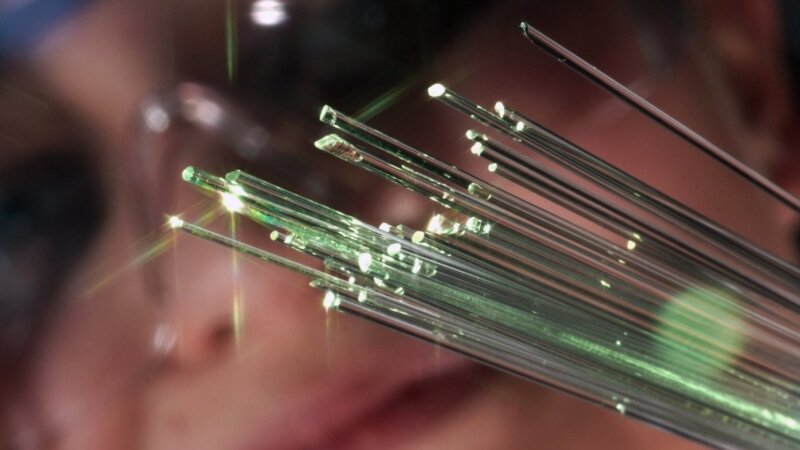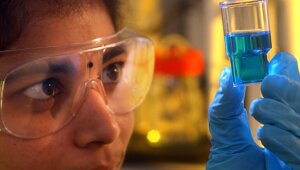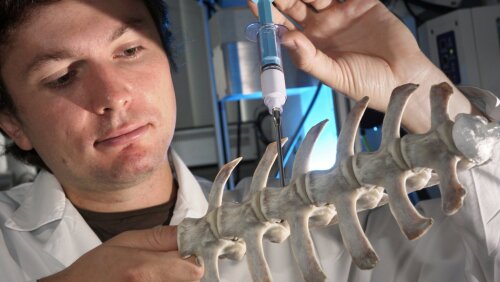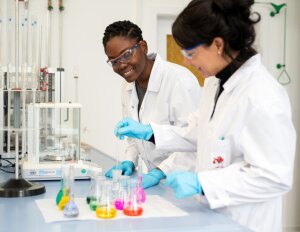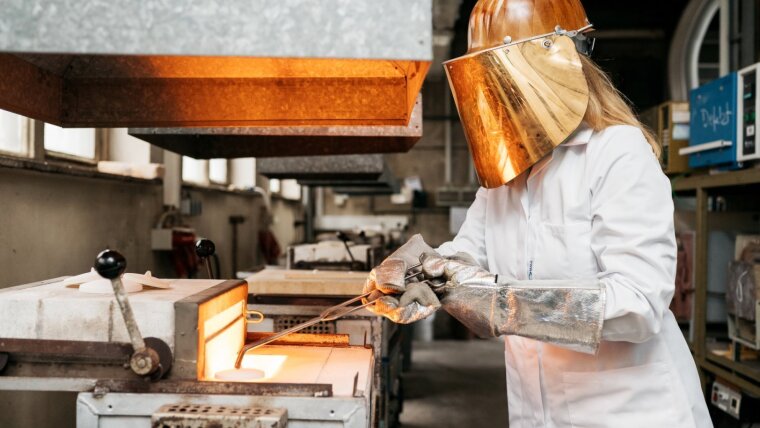
You can find more detailed information in the module catalogue for the degree programmepdf, 625 kb · de.
Studentinnen arbeiten im Labor
Image: Christoph Worsch (University of Jena)- Assuring quality in production
- Developing new materials
- Protecting materials against corrosion and failure
- Assessing damage and eliminating errors in industrial production
- Developing environmentally friendly manufacturing and production processes
- Investigating recycling methods
- Diverse fields of work in industrial sectors (e.g. automotive and mechanical engineering; aerospace; metalworking, optical and chemical industries; energy and environmental technology; electrical industry; medical technology; glass and ceramics industries)
- Interdisciplinary research
-
University entrance qualification
A university entrance qualification, such as a general secondary school leaving certificate, is required for admission onto the study programme.
More information on university entrance qualifications can be found here.
-
Language requirements
Admission and language requirements for applicants of foreign nationality and without German Abitur: www.uni-jena.de/en/study-orientation-international
Löbdergraben 32
07743 Jena
Google Maps site planExternal link
Max-Wien-Platz 1
07743 Jena
Google Maps site planExternal link
Max-Wien-Platz 1
07743 Jena
Google Maps site planExternal link
University Main Building / SSZ
Fürstengraben 1
07743 Jena
Google Maps site planExternal link
Office hours:
We offer consultations in person, by telephone, and via Zoom. You can make an appointment by calling us on +49 3641 9-411111 (Mondays to Fridays from 9:00 to 11:00) or outside these office hours on +49 3641 9-411200. You can also use our remote help desk.
Consultation hours:
Mondays, Tuesdays, Thursdays and Fridays (9:00 to 12:20), Tuesdays (14:00 to 18:00), and Wednesdays and Thursdays (14:00 to 16:00).
Video chat: To the video chat – Zoom Videochat ZeitenMondays to Fridays (12:30 to 13:00) Password ZSB2020 Data protection informationpdf, 101 kb
University Main Building, Room E065
Fürstengraben 1
07743 Jena
Google Maps site planExternal link
Opening hours:
Mondays (10:00 – 12:00)
Tuesdays (13:00 – 15:00)
Wednesdays (10:00 – 12:00)
Thursdays (13:00 – 15:00)
Fridays (10:00 – 12:00)
You can also use our remote help desk at
www.uni-jena.de/service-ssz
or send us your enquiries by post.
Telephone hours:
Mondays to Fridays
(9:00 – 11:00)
Postal address:
Friedrich-Schiller-Universität Jena
Studierenden-Service-Zentrum
07737 Jena
University Main Building
Fürstengraben 1
07743 Jena
Google Maps site planExternal link
